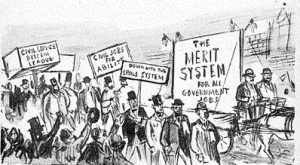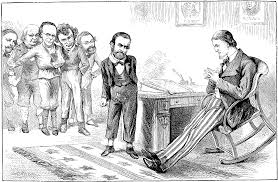New Jersey Civil Service Law Allows for Removal of Applicant from Hiring List for Negative Employment History, Appeals Court Says
New Jersey civil service law provides employees with an effective avenue for appealing adverse employment decisions to the New Jersey Civil Service Commission. However, in the case of Matter of Trejo, Police Officer and Union City, a New Jersey appeals court held that an employee may be removed from a civil service hiring list for a negative prior employee disciplinary history. This decision has significant implications for how employees should handle allegations of misconduct and resulting discipline.
decision has significant implications for how employees should handle allegations of misconduct and resulting discipline.
Background
Ana Trejo was a public safety telecommunicator with the Union City Police Department for ten years when she took the civil service examination for police officer. She passed and was placed on the eligible list. However, Union City removed Trejo from the list because of her history of civil service employee discipline during her ten year employment as a telecommunicator with the Police Department. Her disciplinary history included minor discipline for absenteeism; being reprimanded for sharing confidential law enforcement information; and imposition of major discipline for “inappropriate conduct.” The New Jersey Civil Service Commission gave notice to Trejo that she had been removed from the list for having an “unsatisfactory employment record.”
 New Jersey Lawyers Blog
New Jersey Lawyers Blog


 employees can become permanent and receive all the protections of the Civil Service System, they must successfully complete a working test period.
employees can become permanent and receive all the protections of the Civil Service System, they must successfully complete a working test period.

 Jersey civil service law enforcement officer.
Jersey civil service law enforcement officer. defined as a suspension or fine of more than five days. Major discipline includes removal, disciplinary demotion, and suspension or fine for more than five working days. The
defined as a suspension or fine of more than five days. Major discipline includes removal, disciplinary demotion, and suspension or fine for more than five working days. The  Service rules hinder their ability to run their organizations by hiring, firing and imposing
Service rules hinder their ability to run their organizations by hiring, firing and imposing